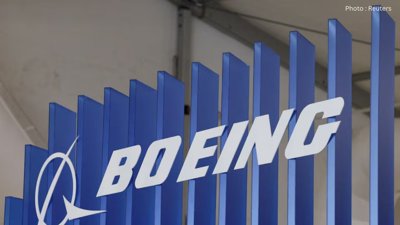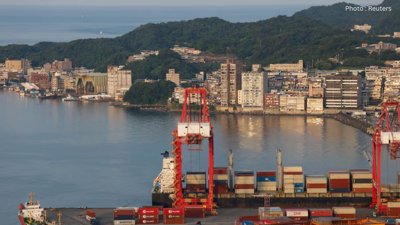
Post by : Amit
India Launches Massive Tender for 4,000 Electric Buses Under PM-eBus Sewa Scheme
New Delhi — In a landmark move to reshape India’s urban mobility landscape and promote sustainable transportation, the Ministry of Heavy Industries (MHI) has floated a mega tender inviting bids for 4,000 electric buses under the PM-eBus Sewa scheme. This national initiative, aimed at transforming public transport in over 100 tier-2 and tier-3 cities, could dramatically accelerate India's transition toward cleaner, more efficient mobility systems.
The tender marks one of the largest-ever e-bus procurements in Indian history, reinforcing the government’s commitment to electrify public transport while making it affordable, inclusive, and operationally sustainable. The bid process is being overseen by Convergence Energy Services Limited (CESL)—a wholly owned subsidiary of Energy Efficiency Services Limited (EESL)—which is tasked with standardizing procurement and accelerating the deployment of electric vehicles across India.
A National Push for Electric Mobility
The proposed deployment focuses on cities with populations under four million, specifically targeting areas where public transport fleets are outdated, diesel-dependent, or insufficient. These smaller cities have often lagged behind metros in terms of investment and technology upgrades. This new initiative aims to bridge that gap.
Under the tender, the central government will provide up to 40% viability gap funding (VGF) to make the procurement financially feasible for local governments. The remainder of the capital and operational costs will be borne by state-level transport authorities or special purpose vehicles (SPVs) set up for this purpose.
To promote competition and region-specific customization, the tender has been divided into four operational clusters, each bundling cities with similar road conditions, transit needs, and infrastructure constraints. Buses under the scheme are expected to be delivered within 15 to 24 months of contract allocation and will be operated under a 12-year gross cost contract (GCC) model, which ensures long-term operator responsibility.
Big Players Line Up
The e-bus segment in India has rapidly attracted major auto and EV players. Tata Motors, Ashok Leyland, Olectra Greentech, JBM Auto, and Switch Mobility are all expected to bid, having already demonstrated capabilities in earlier CESL tenders and state-level deployments.
Global electric vehicle giants, including BYD, Volvo-Eicher, and Foton, may also compete, particularly if they partner with local manufacturers to meet localization norms under the upcoming FAME III scheme, which promotes “Make in India” manufacturing.
According to a senior official at the Ministry of Heavy Industries, “This tender isn’t just about deploying buses—it’s about laying the foundation for sustainable urban transport, creating new EV infrastructure, localizing manufacturing, and generating thousands of green jobs across the country.”
Raising the Bar: Tech and Passenger Standards
The e-buses to be deployed under the PM-eBus Sewa scheme will adhere to modern standards in safety, accessibility, and passenger comfort. All buses will feature:
These specifications aim to elevate the commuter experience and bring public transport systems in smaller cities in line with international norms.
Procurement Challenges and Cost Dynamics
The financial magnitude of the tender is substantial. Each electric bus is estimated to cost between ₹1 crore to ₹1.5 crore, depending on its battery capacity, range, and charging method (fast vs. slow). With 4,000 units on offer, the total procurement value is likely to exceed ₹5,000 crore (approximately $600 million USD).
CESL has outlined a strong emphasis on battery safety standards, interoperable charging protocols, and encourages bidders to explore Battery-as-a-Service (BaaS) or swappable battery models. These strategies aim to reduce upfront costs and improve vehicle turnaround times.
However, logistical hurdles remain. A senior official at Delhi Transport Corporation (DTC) stated, “Several cities still do not have grid-ready charging infrastructure. Timely coordination with state electricity boards, land development authorities, and urban planning departments is critical before buses can be deployed.”
To address this, the Ministry of Heavy Industries is preparing a parallel tender for 100 depot-level charging stations, expected to be launched in August 2025. States have been instructed to submit detailed infrastructure proposals by the end of July to ensure early groundwork.
Inclusion, Skills Development & Environmental Impact
The PM-eBus scheme includes several progressive social and environmental stipulations. Operators must ensure that at least 10% of drivers, technicians, and support staff hired under the contract are women or individuals from marginalized communities.
Additionally, the Automotive Skills Development Council (ASDC), in collaboration with IIT Delhi, will launch a centralized training curriculum. This will cover key EV competencies such as:
All buses must also comply with AIS-153 safety protocols, which cover thermal battery safety, fire suppression, real-time diagnostics, rollover protection, and passenger evacuation procedures.
Environmental experts estimate that the deployment of 4,000 e-buses could collectively reduce carbon emissions by over 320,000 metric tons annually, while also helping cities meet national ambient air quality standards (NAAQS).
Investor Interest and Global Context
India’s transition to electric public transport has drawn interest from international investors and climate finance institutions. The World Bank has already committed a $1.2 billion line of credit to support e-bus deployments, while Asian Development Bank (ADB) and KfW Bank (Germany) are reportedly in talks to co-fund selected city-level procurements.
Private equity players such as Macquarie Capital, Actis, and India’s own National Investment and Infrastructure Fund (NIIF) are also exploring operating lease models, wherein they own and maintain buses while public agencies pay a usage fee. This de-risks public procurement and allows states to avoid heavy capital expenditure.
According to a recent Morgan Stanley report, India’s electric bus market is projected to grow at a compound annual growth rate (CAGR) of 40% through 2030, with over 300,000 e-buses expected to be in operation by the end of the decade.
Voices from the Ground
Officials and transport authorities from across India have welcomed the tender with enthusiasm. Karnataka State Road Transport Corporation (KSRTC) Managing Director Anbu Kumar confirmed that the state has submitted proposals for 350 buses and plans to prioritize Tier-2 towns in northern Karnataka.
“This gives us the opportunity to electrify areas that were never part of Smart City plans,” he said. “It’s a huge win for climate and commuter safety.”
In Assam, Guwahati Municipal Transport has indicated interest in procuring 180 e-buses under Cluster II. “We lacked the scale to negotiate with original equipment manufacturers (OEMs) on our own. This centralized approach makes large-scale procurement viable for cities like ours,” said Transport Minister Parimal Suklabaidya.
Strategic Alignment with National Climate Goals
This e-bus initiative is a major building block in India’s climate and energy transition strategy. As part of its updated Nationally Determined Contributions (NDCs) under the Paris Agreement, India has committed to reducing the emissions intensity of its GDP by 45% by 2030 and achieving net-zero carbon emissions by 2070.
Transportation—especially urban diesel-based buses—accounts for a significant portion of urban air pollution and carbon output. Moving to electric buses will not only cut fuel imports but also drastically reduce urban noise and heat emissions.
This tender also sets a template for future sustainable procurement, blending central incentives, local execution, private participation, and climate resilience.
The bid submission deadline for this tender is August 28, 2025, with technical and financial evaluations scheduled for mid-September. The Ministry expects to issue Letters of Award (LoAs) by October 2025, with first deliveries expected in Q2 of 2026.
By then, most recipient cities are expected to have developed their charging infrastructure, driver training pipelines, and route planning frameworks. States have also been advised to identify secondary bus depots, night-parking spaces, and emergency service tie-ups.
The success of this tender will likely define India’s ability to scale green mobility in smaller cities, many of which are expected to see a surge in population and vehicle demand over the next decade.
As air quality deteriorates in smaller cities and climate risk becomes more urgent, India’s electric mobility journey must extend beyond metros. The PM-eBus Sewa scheme and this historic 4,000-bus tender represent a critical inflection point.
Not just for transit modernization—but for climate action, equitable access, manufacturing competitiveness, and urban resilience. If executed well, this initiative could inspire similar procurement models across Africa, Southeast Asia, and Latin America—regions facing similar transport and climate challenges.
India is not just buying buses. It’s building a future-ready transport network, one clean, quiet, electric kilometer at a time.
India, Ev Buses, Govt Tenders










Advances in Aerospace Technology and Commercial Aviation Recovery
Insights into breakthrough aerospace technologies and commercial aviation’s recovery amid 2025 chall

Defense Modernization and Strategic Spending Trends
Explore key trends in global defense modernization and strategic military spending shaping 2025 secu

Tens of Thousands Protest in Serbia on Anniversary of Deadly Roof Collapse
Tens of thousands in Novi Sad mark a year since a deadly station roof collapse that killed 16, prote

Canada PM Carney Apologizes to Trump Over Controversial Reagan Anti-Tariff Ad
Canadian PM Mark Carney apologized to President Trump over an Ontario anti-tariff ad quoting Reagan,

The ad that stirred a hornets nest, and made Canadian PM Carney say sorry to Trump
Canadian PM Mark Carney apologizes to US President Trump after a tariff-related ad causes diplomatic

Bengaluru-Mumbai Superfast Train Approved After 30-Year Wait
Railways approves new superfast train connecting Bengaluru and Mumbai, ending a 30-year demand, easi